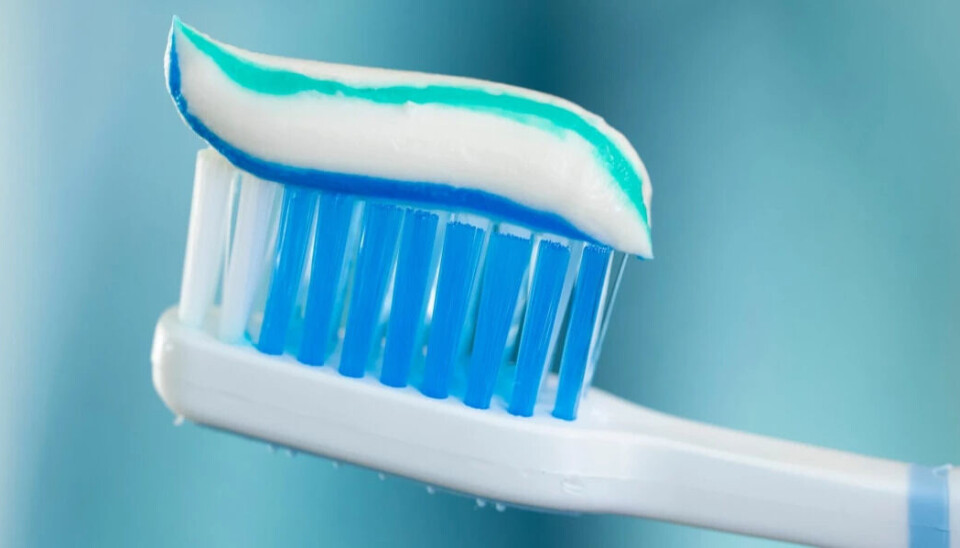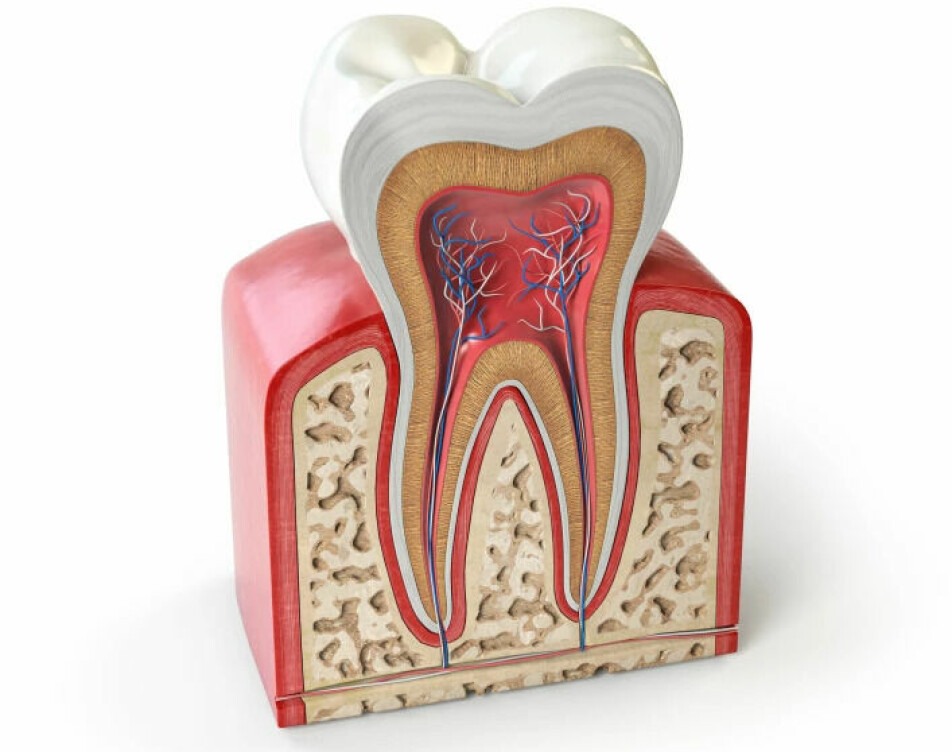
Dentists go on about fluoride. But why is it so important?
Something happens to the enamel and bacteria in our mouths when we brush our teeth with fluoride.
Fluoride toothpaste, fluoride tablets, and fluoride mouth rinse. You've probably never had a dental appointment without the word ‘fluoride’ being mentioned.
This substance will help us reach the goal of zero cavities.
But why is it so good for our teeth?
A superpower
Fluoride is a superpower when it comes to dental health, dental researcher Qalbi Khan said when sciencenorway.no spoke to him in 2021.
He described it like this:
Evil forces try to make cavities in our teeth. Such an evil force could be the combination of a person who is very fond of sugar, and who is also sloppy about brushing their teeth.
Life becomes easy for the bacteria in this person's mouth.
Then there are good forces that work in the opposite way. One such good force is saliva. If we have too little saliva in our mouths, we get cavities more easily.
Another good force is a low-sugar diet. So is brushing your teeth well twice a day. And not least fluoride.
There’s a kind of tug of war between the good and the evil side, Khan explained. And with fluoride on the team, the good side gets stronger.
Fluoride settles in the crystals that form enamel
In another article about how fluoride works, forskning.no wrote that fluoride inhibits the bacteria that create cavities (link in Norwegian).
It makes it harder for them to make acid. The acid they make is what gives us cavities when left on our teeth for too long.
It is also important that the fluoride sticks to the enamel, so that it hardens and can endure more.
Dental researcher Ståle Petter Lyngstadaas explained to forskning.no in 2019 that the fluoride settles in the crystals that the enamel is made of.
This means that it can withstand more acid before it starts to be corroded away.
Bad food?
In 2022, forskning.no asked the question: Do we need fluoride because we eat such bad food? (link in Norwegian). Dental researcher Linda Stein from UiT the Arctic University of Norway shared her thoughts.
She said that if we were going to manage without fluoride, we would have to be very careful not to ingest sugar. We would have to make all food from scratch ourselves and not eat dessert at grandma's. Restaurants? Forget it. Too much sugar.
All in all, it would require an awful lot of time and energy to adapt to this new reality.
“But, like with so much else, when it comes to fluoride, it's all about dosage. It is not true that the more you take, the better,” Stein said.
Tove Wigen told sciencenorway.no the same in 2023.
Not everyone needs the same amount of fluoride
Fluoride is particularly important for children and young people. They have immature teeth that get cavities more easily, dental researcher Tove Wigen explained.
She was nevertheless clear that you shouldn't splurge on fluoride without thinking twice.
According to Wigen, the dental hygienist or dentist can look at your teeth to see if you have a high or low chance of getting a cavity.
And if the chance is high, you may be recommended a fluoride mouth rinse in addition to fluoride toothpaste.

Worse for older generations
Your grandparents were probably born before fluoride became available to everyone.
“If you were born in 1960, you were born ten years too early,” dentist Kari Sunniva Elde told forskning.no in 2022 (link in Norwegian). Fluoride didn’t become available to everyone before 1971.
In the years after World War II, which ended in 1945, there was not only zero fluoride. There was also a lot of sugar. A bad combination.
People got more cavities. Dentists had to remove more of the decayed tooth. The fillings that existed back then needed more space than the fillings we have today.
The arrival of fluoride was considered a revolution for dental health.
We get fewer cavities
“Using fluoride toothpaste twice a day is the national recommendation, and the cheapest investment you can make for your dental health,” Linda Stein said.
Fluoride cannot get all the credit for the fact that people have had fewer cavities in recent decades, according to Stein.
But fluoride is one of the most important reasons why fewer people get many cavities, she said.
———
Translated by Alette Bjordal Gjellesvik.
Read the Norwegian version of this article on ung.forskning.no





































